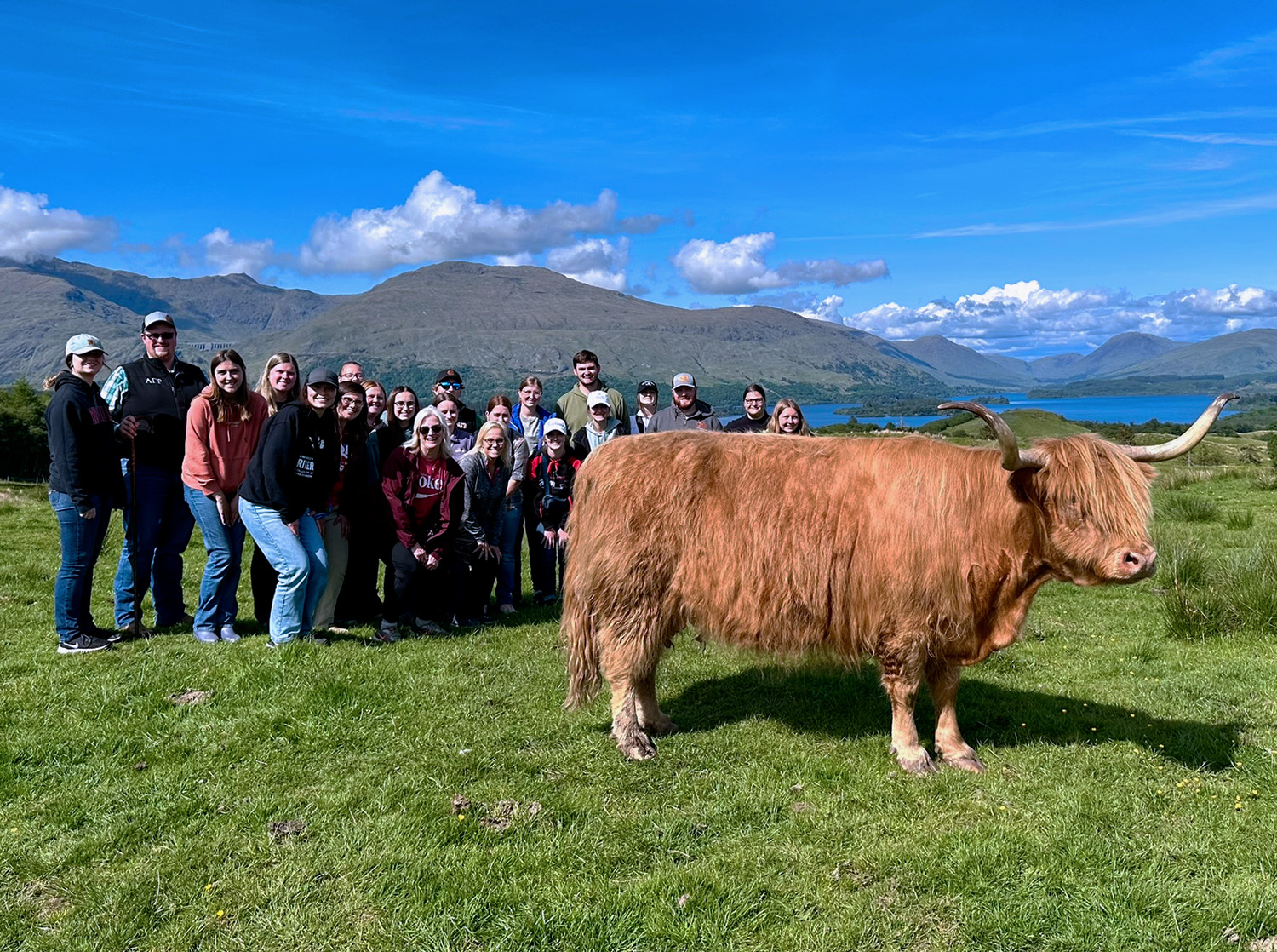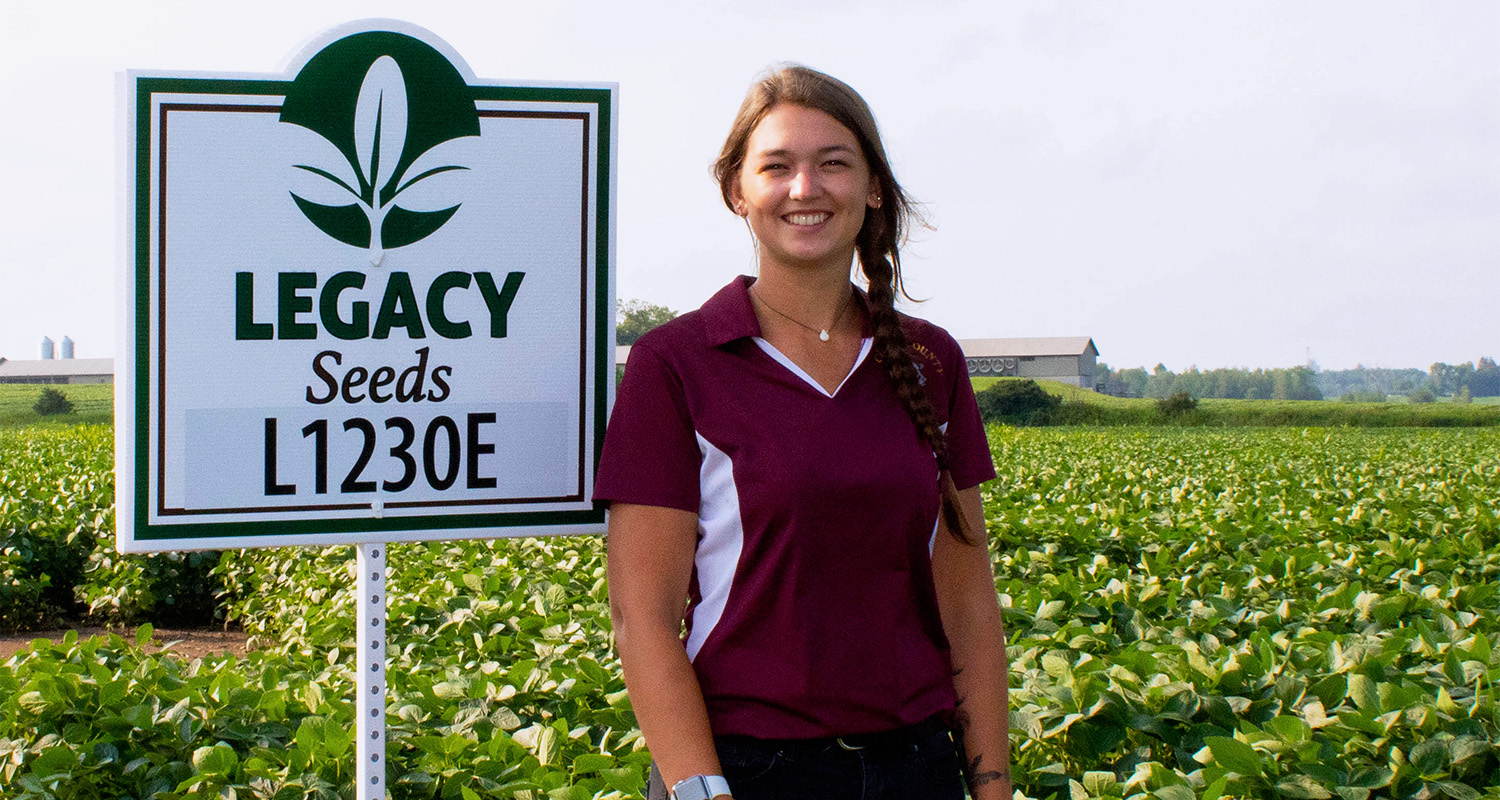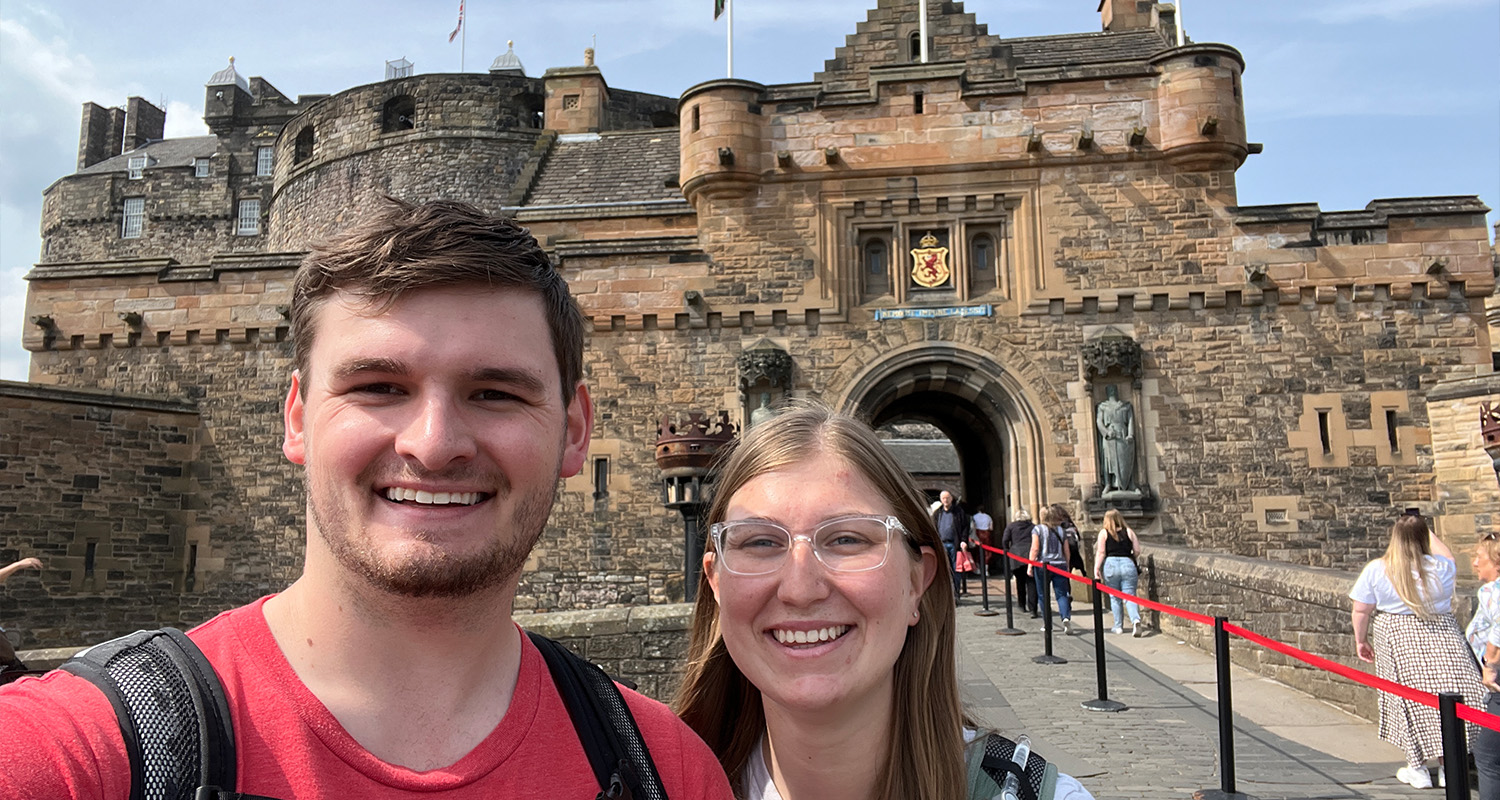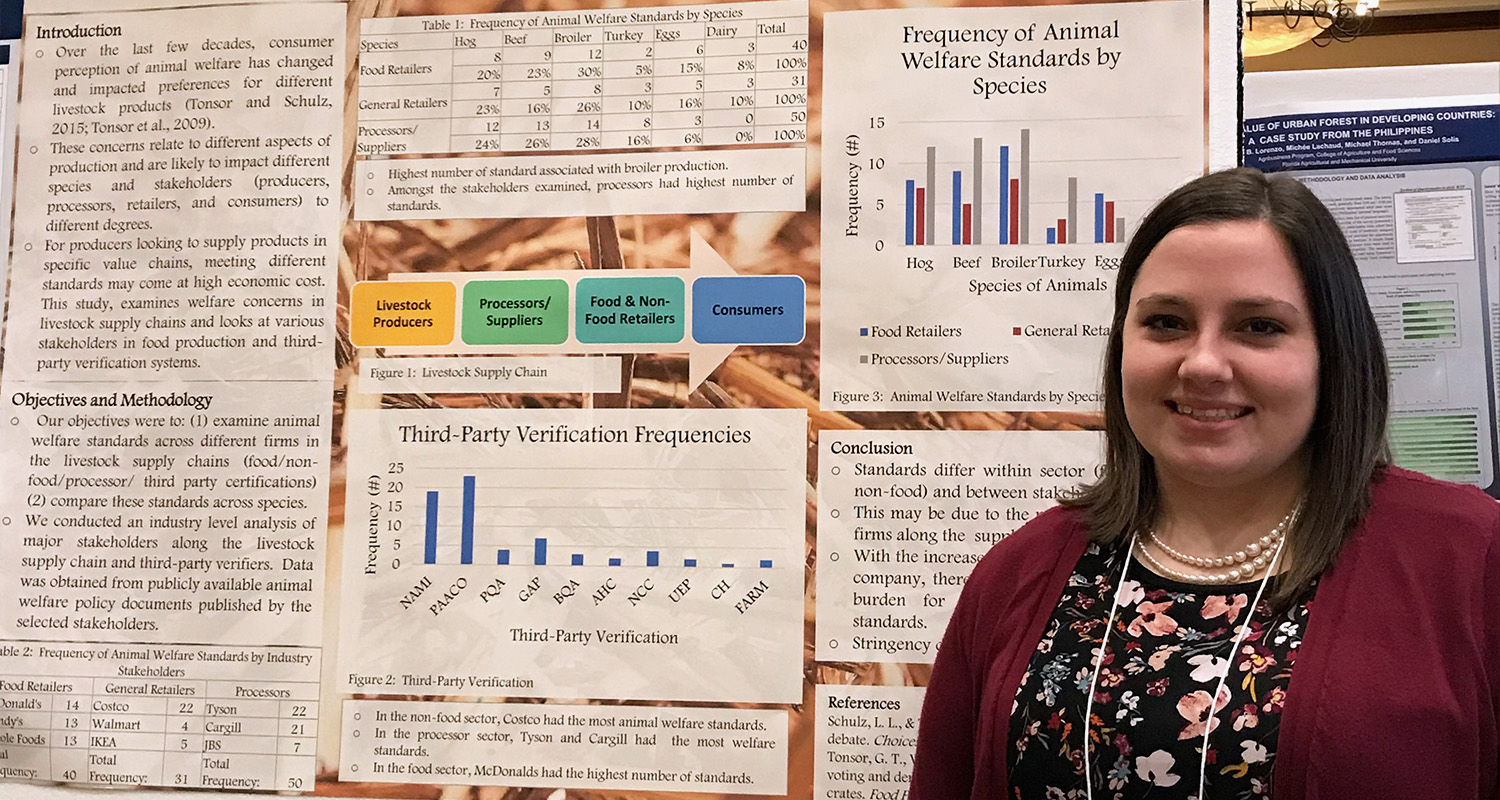Learn By Doing
Hands-on learning is a key component of a UWRF education and as an agricultural business student, you'll have numerous opportunities to apply concepts learned in the classroom to real-world work. You have the option to choose one of the following to count towards your 400-level Tools courses: Internship (AGEC270), Agribusiness International Study (AGEC470) or Independent Study (AGEC490). Explore below to learn more.

Internship (AGEC 270)
Earn credit while working in a professional setting! For more information, visit uwrf.edu/CAFES/Internships/Index.cfm.
Details
As part of an internship, you'll set individualized learning objectives with both your employer and the internship faculty coordinator, ensuring you get the most out of your experience. In addition to the work required by your internship host, you'll complete a special project at the internship site that you'll present to fellow student interns when you return to campus.
Internship positions in the agribusiness field consist of components from sales, management, marketing or finance. Interns have recently been placed at:
- AgCountry Farm Credit Services
- Alcivia
- Allied Cooperative
- CHS
- Compeer
- Gerten’s
- Golden Harvest
- Greenstone Farm Credit Services
- Seneca Foods
- WinField United
- United States Department of Agriculture

International Study (AGEC 470)
An international experience worth three academic credits, this option provides you with a focus on agricultural and food industries while studying abroad.
Details
This course will provide you with the appropriate tools needed to complete a comparative study between your host country and the United States. For example, the course could emphasize/draw from various economic theories affecting business decisions including trade and policy theories, industrial organization or economic development theories, to help you understand and compare the economic realities of agribusiness in each country. The agricultural sector, history and culture is discussed in the classroom prior to a 10-day group excursion to another country. Recent destinations have included Argentina, Taiwan and Scotland.

Independent Study (AGEC 490)
This is your opportunity to team up with one of our experienced faculty members to either conduct a research project or pursue the further study of a topic agricultural economics.
Details
During this course, you'll work together with a faculty member to develop unique learning objectives for you to complete over the course of the semester. You'll apply theoretical concepts to real world context and data - a process that's extremely helpful if you're interested in a future career in research or continuing on to grad school. At the end of the course, your results may be disseminated through academic articles for extension outlets or journals, research posters and/or presentations at symposiums or conferences.


